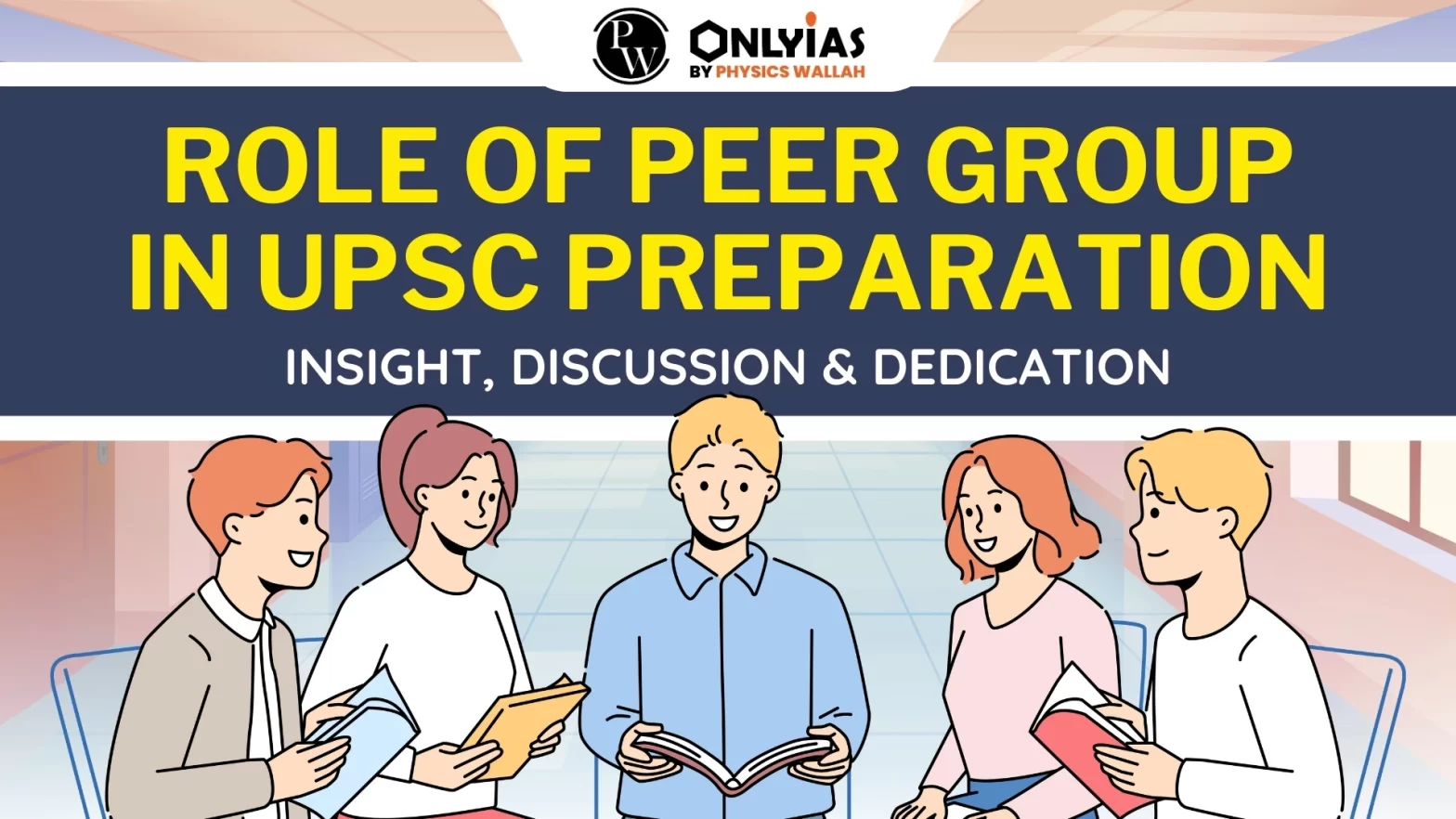Exploring the vital role of peer group in UPSC preparation, fostering collaborative learning, shared insights, and resource sharing. Learn how positive groups enhance success, while negative ones pose threats to motivation, focus, and overall well-being. Discover traits of both good and bad peer groups and find answers to frequently asked questions about their impact on UPSC aspirants.

Every year, the Union Public Service Commission conducts the Civil Services Exam for All India Services and various other Group A services of the Indian Government. These services predominantly entail administrative roles. Aspiring candidates aiming to enter these services must successfully navigate a year-long examination, consisting of the Preliminary exam, Mains exam, and Personality Test. Peer Group Play Important role in UPSC preparation as a collective of individuals aspiring to clear the civil offerings exam.
The influence of a bad or terrible role of peer group in UPSC preparation can substantially impact an aspirant’s life towards turning into an IAS officer. Here are several methods wherein a destructive peer group can doubtlessly derail the dream of turning into an IAS:
| Traits of a Good Role of Peer Group in UPSC Preparation | Traits of a Bad Role of Peer Group in UPSC Preparation |
| 1. Positive and Supportive Atmosphere | 1. Negative Influence: Demeaning attitudes or discouraging conduct impacts motivation negatively. |
| 2. Shared Learning Goals | 2. Lack of Focus: Group contributors may have divergent pursuits or doubtful goals. |
| 3. Constructive Feedback | 3. Unhealthy Competition: Competitiveness will become unfavourable as opposed to motivating. |
| 4. Resource Sharing | 4. Hoarding Information: Members withhold useful assets, developing an uncooperative environment. |
| 5. Open Communication | 5. Poor Communication: Lack of verbal exchange or useless discussions avoid collaboration. |
| 6. Diverse Expertise | 6. Lack of Diversity: Homogeneous group with limited perspectives and information. |
| 7. Respectful Environment | 7. Disrespectful Behaviour: Bullying, disrespect, or discrimination disrupts the getting to know environment. |
| 8. Mutual Accountability | 8. Lack of Accountability: No experience of duty or dedication to institution objectives. |
| 9. Stress Management Support | 9. Negative Influence on Stress: Group exacerbates pressure through pessimism or immoderate pressure. |
| 10. Regular Group Activities | 10. Lack of Group Activities: Minimal engagement in collaborative getting to know or exam education activities. |
| Must Read | |
| NCERT Notes For UPSC | UPSC Daily Current Affairs |
| UPSC Blogs | UPSC Daily Editorials |
| Daily Current Affairs Quiz | Daily Main Answer Writing |
| UPSC Mains Previous Year Papers | UPSC Test Series 2024 |
Peer groups in UPSC guidance play an essential role by means of imparting shared gaining knowledge of, mutual help, a platform for discussions, and a useful resource-sharing dynamic.
Peer groups gains knowledge by means of fostering discussions that deepen knowledge, sharing numerous views, and imparting positive feedback.
A correct peer group is characterised through a high quality and supportive ecosystem, shared mastering goals, positive comments, useful resource-sharing, open communique, diverse information, a respectful surroundings, mutual accountability, stress control assist, and regular organisation activities.
A terrible peer group can negatively impact UPSC instruction by way of inflicting a loss of motivation, distractions, negative attitudes, dangerous competition, undermining self assurance, misuse of time and sources, loss of emotional support, have an impact on on ethics and values, deterioration of intellectual nicely-being, and an impact on decision-making.
Good peer groups may be located in offline training lessons, on-line boards, have a look at circles, or through mutual connections. Positive peer groups frequently form round tables, Discuss dreams and commitment to UPSC preparation.
A supportive peer group offers emotional aid, shares stress management strategies, and creates an advantageous atmosphere. Mutual expertise of demanding situations and collective coping strategies make a contribution to pressure control.
<div class="new-fform">
</div>
